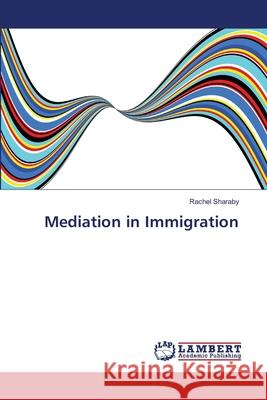Mediation in Immigration » książka
Mediation in Immigration
ISBN-13: 9783659386077 / Angielski / Miękka / 2013 / 100 str.
This book discusses traditional mediators (shmaglotz) of immigrants from Ethiopia in Israel who are included in the public service in Israel. The book examines the way in which they handle conflicts in the family and in the community of immigrants from Ethiopia using traditional and modern tools. It examines the extent to which they use intercultural mediation, which changes cultural norms among both the immigrants from Ethiopia and the State institutions. A discussion on the traditional mediators in the new cultural context makes a research contribution and has great practical importance. Such a discussion enables us to follow changes in the status and roles of a traditional leadership within a modern society. The book gives us an opportunity to observe not only the absorbed groups, but also the absorbing, and to examine whether a change takes place in their viewpoints and values as a result of their encounter with the immigrants, an issue that was not discussed sufficiently in the research literature. It further enables evaluation of the declared multicultural policy in absorbing immigrants, as it is implemented in Israel.
This book discusses traditional mediators (shmaglotz) of immigrants from Ethiopia in Israel who are included in the public service in Israel. The book examines the way in which they handle conflicts in the family and in the community of immigrants from Ethiopia using traditional and modern tools. It examines the extent to which they use intercultural mediation, which changes cultural norms among both the immigrants from Ethiopia and the State institutions. A discussion on the traditional mediators in the new cultural context makes a research contribution and has great practical importance. Such a discussion enables us to follow changes in the status and roles of a traditional leadership within a modern society. The book gives us an opportunity to observe not only the absorbed groups, but also the absorbing, and to examine whether a change takes place in their viewpoints and values as a result of their encounter with the immigrants, an issue that was not discussed sufficiently in the research literature. It further enables evaluation of the declared multicultural policy in absorbing immigrants, as it is implemented in Israel.











